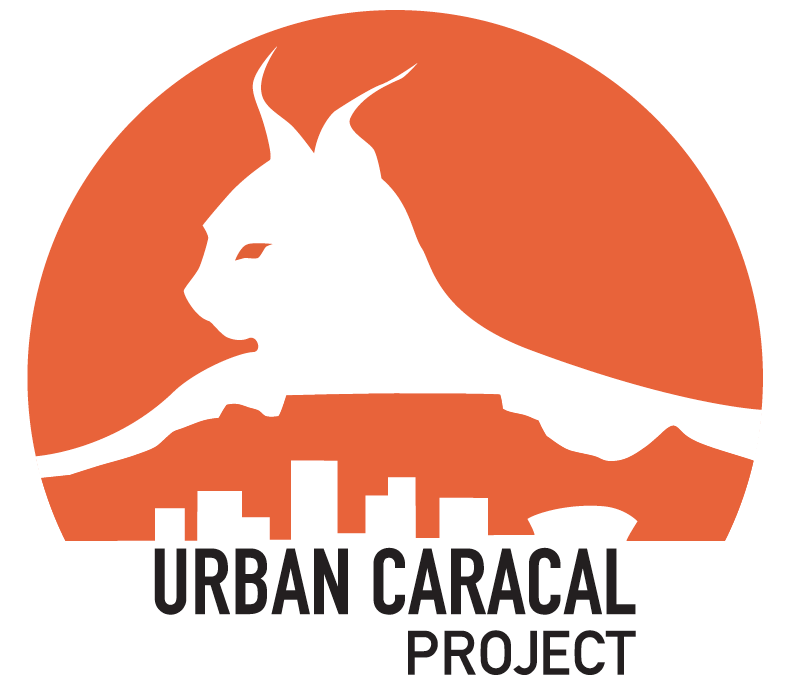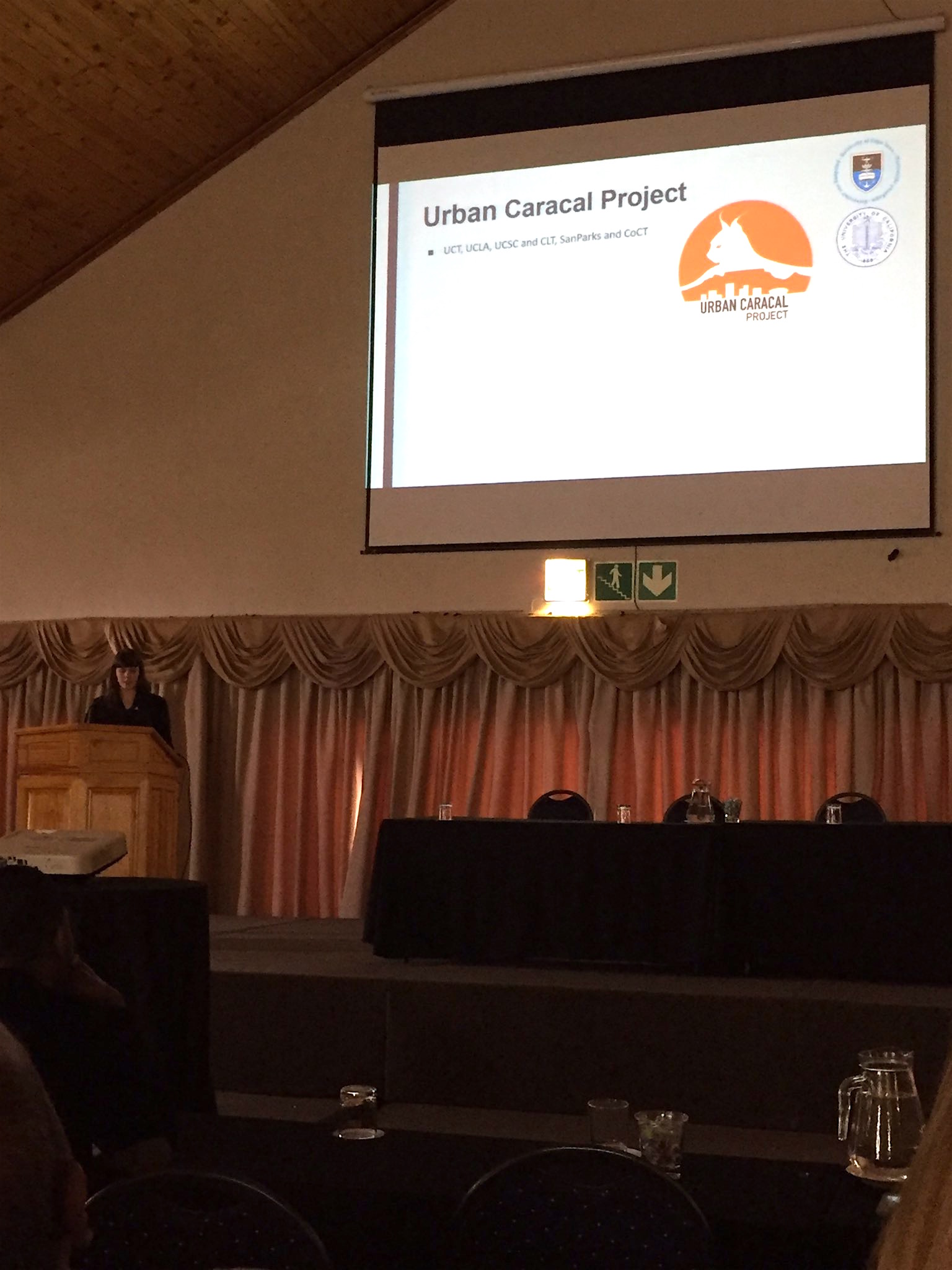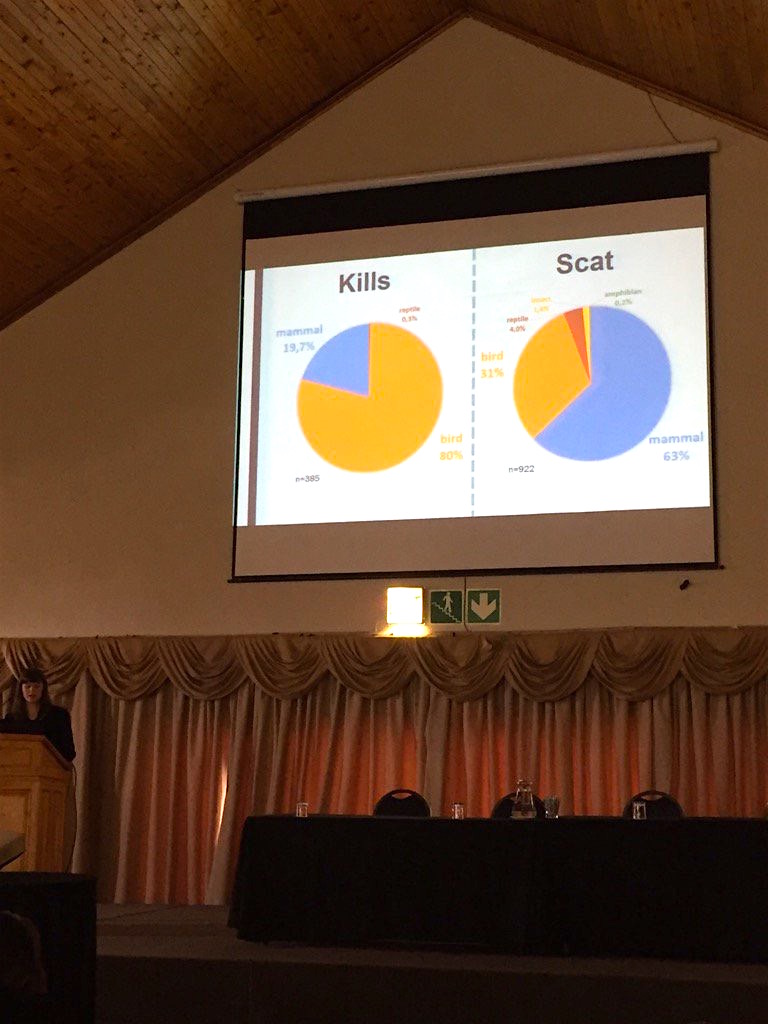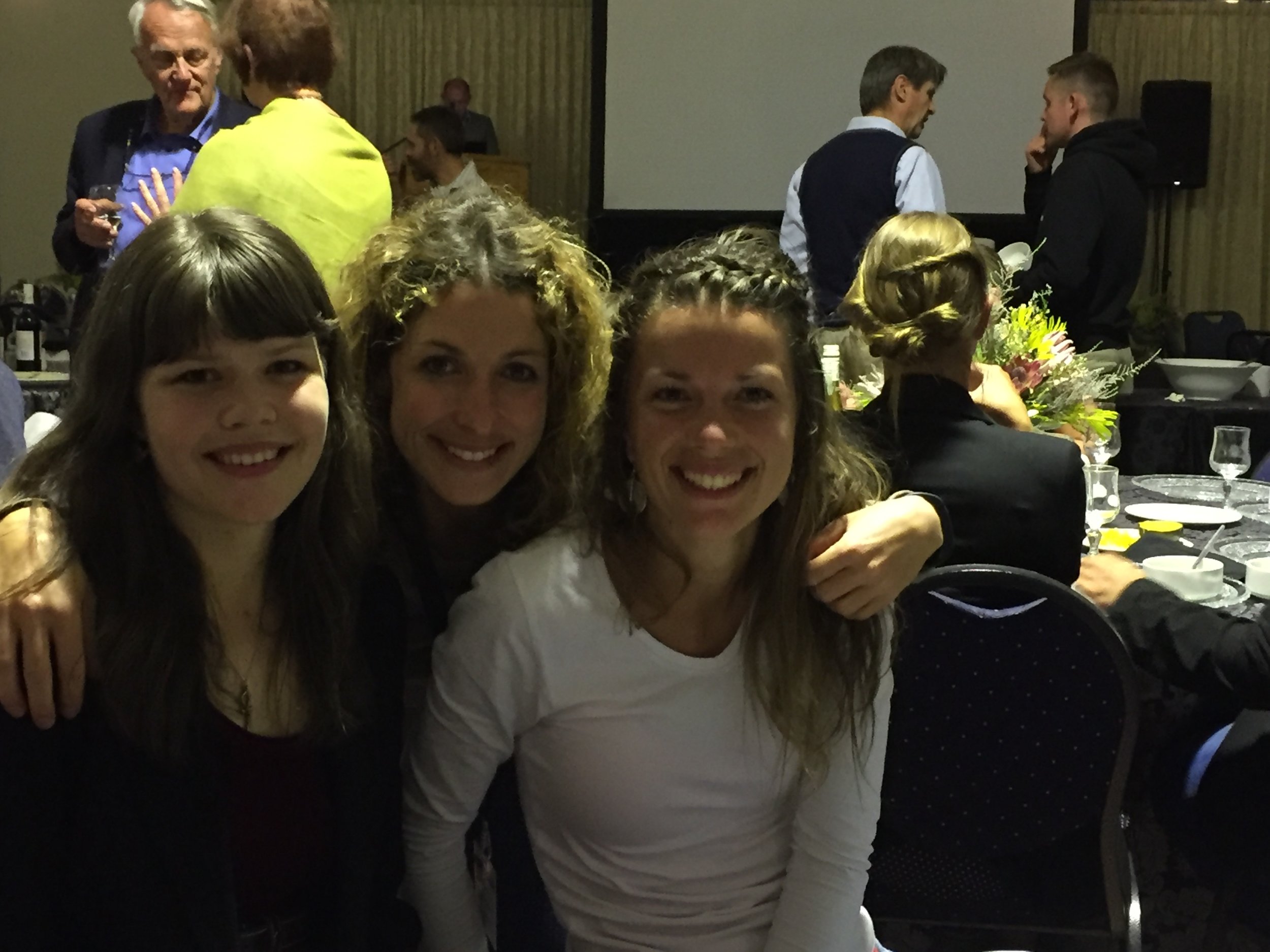SAWMA symposium 2017
This year the South African Wildlife Management Association symposium was held in the Western Cape, at Goudini Spa in the Boland. This was great for the Urban Caracal Project, as it was a short drive from Cape Town.
I presented some of the early diet results and spoke about some of the management implications. These included the relatively low consumption of carnivores, which includes domestic cats (at only 2% of all feeding events). This is important because a lot of Cape Town residents are really worried about the risk of caracal predation on their pets. We can now see this is in fact not a big issue, and can be fully addressed simply by managing pets, especially those on the urban edge. I also mentioned routes of secondary rodenticide (i.e. rat poison) exposure. We now know that introduced rodents (house mice and rats) make up a tiny proportion of diet. But we also know that most of the Cape Town caracals are exposed to several different anticoagulant rodenticide compounds. So where are they being exposed? It might be that this exposure comes from the other carnivores that they eat (e.g. genets and mongoose), which are eating introduced rodents, and possibly even the poisons themselves. Preliminary testing has shown that these species have even higher levels of poison exposure than the caracals, so this may well be the case. But further investigation would be needed to know for sure. Lastly, my talk would have been incomplete if I didn’t mention penguin predation. The situation at Boulder’s Beach has received a lot of media attention recently. But it isn’t really new, just newly discovered. Predators are a natural part of the Cape Peninsula system and land-based penguin colony management may have to include more intensive protective measures. It was interesting to hear Dr Lauren Waller’s (CapeNature) perspective on this in her presentation the next day, where her focus was the Stony Point colony. Joleen Broadfield (UCP field manager) then gave a super interesting talk about the threats to survival of Cape Town caracals. The main cause of mortality seems to be car collisions, but when considering the collared cats, disease and poisons are also important threats.
The conference presentations were all of a high standard this year, and we all got great insight into conservation efforts all over southern Africa, but also some input from keynote speakers from Australia and the UK. It was great to share ideas with fellow carnivore researchers – special mention to Marine Drouilly of the Karoo Predator Project who won a prize for her PhD talk! Check out her awesome work! The venue was also great, with it’s hot springs, mountain scenery and paths through stunning fynbos spring flowers.



